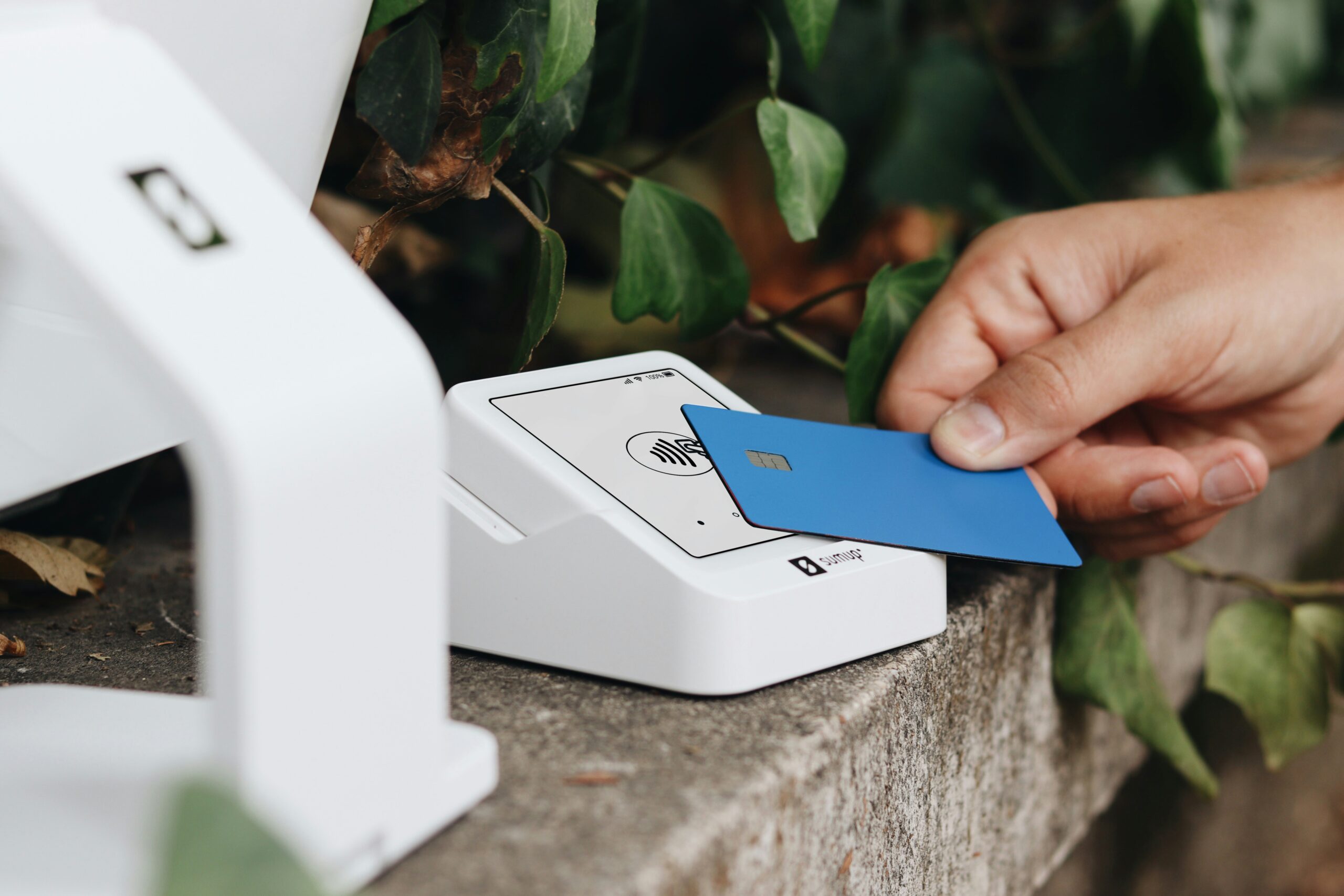Best small business opportunities in Germany: Online & offline
Written by
Kinga EdwardsPublished on
Dive into Germany’s top small business opportunities! From online startups to local shops, explore ideas that can turn your passion into profit.

Germany has one of the strongest economies in Europe, a high standard of living, and a consumer market that values quality, trust, and practicality. It’s not just Berlin calling the shots. Smaller cities like Leipzig, Stuttgart, and Bremen are full of active communities and underserved niches. There’s room for everything from neighborhood-based services to fully remote digital businesses.
The good news? You don’t need a breakthrough product to succeed.
Many of the best small business ideas in Germany are about solving everyday problems or improving what already exists. Think: better pet care in mid-sized cities, or online tutoring for working parents who speak German as a second language.
This guide breaks down the best small business opportunities in Germany right now – both online and offline. But before jumping in, let’s cover what makes a small business idea actually work here.
What makes a business idea work in Germany?
Not every good idea works everywhere. The best small business ideas in Germany share a few common traits:
- they’re built on trust,
- meet a clear demand,
- and respect how Germans prefer to shop and live.
Germans are known for being value-driven and thorough. They do research before buying (56% stated that). They expect reliability, clear pricing, and honest service. If your idea overpromises or feels too risky, it won’t land.
This is especially true online, as Germany has one of the highest Internet penetration rates in the world. But it’s also one of the most skeptical. New online businesses need to build credibility from day one. A well-translated website, responsive support, and clear policies about returns can make or break your launch.
Offline businesses need to meet local expectations, too. Their services must run on time, be fairly priced, and feel dependable. Consistency transforms loyalty here.
There’s also the legal side.
Germany takes paperwork seriously. Freelancers and founders need to register their work and follow the rules, even for small side projects. That might feel heavy at first, but it also helps protect your idea in the long run.
Lastly, timing matters. There’s strong demand in several sectors, like pet care, fitness, sustainable goods, and online learning. Small business opportunities in Germany tend to grow fastest when they tap into both long-term trends and current habits.
So yes, creativity helps. But clarity, structure, and usefulness matter more. If your idea feels practical, trusted, and needed, there’s a good chance it can succeed here.
Take into account when setting up a business in Germany:
- Germans love quality, service, and security, particularly online
- they’re practical buyers, but loyal to brands they trust
- Germany is decentralized: great ideas work outside Berlin, too
- the internet penetration rate is 93.5% and still growing
- aging population + rising demand for local services = major opportunities
The top offline small business opportunities in Germany (2025)
There’s still huge potential for offline services, like those that solve everyday problems, support healthy living, or bring people together in real life. In fact, some of the most sustainable small business ideas in Germany are still offline-first.
Fitness businesses (gyms, studios, personal training)
The demand for fitness in Germany is real, but here’s the catch: only about 22.6% of German adults get enough physical activity. Among women, it even drops. That means there’s a big gap between what people want to do and what they’re actually doing. This makes fitness one of the most promising small business opportunities in Germany.
Example: Small community-based gyms are easier to run than mega fitness centers. Mobile fitness classes in parks, yoga for beginners, or low-impact training for people over 50 are all growing segments.
If you’re a certified trainer, personal coaching can be a great way to start small and build up. Add-ons like meal plans, fitness eBooks, or paid WhatsApp support groups can bring in extra revenue without increasing your overhead.
Tip: There’s also room to blend offline and online. Many fitness businesses now run hybrid models, where in-person classes are paired with digital programs. That’s a strong move, particularly if your clients travel or live outside major cities.
Pet care services

Germans love their pets and they spend serious money on them. Around 45% of households own at least one pet, and that number has been climbing steadily since the pandemic.
The result? A booming market for everything from grooming and walking to boutique pet snacks.
Pet care is one of those small business opportunities in Germany that doesn’t require a fancy storefront or a big investment. Many successful businesses in this space start with solo founders offering one service in one neighborhood, like weekday dog walks in Cologne or weekend grooming for indoor cats in Hamburg.
Tip: Specializing can help you stand out. Services for older pets, nervous pets, or certain breeds are in demand. You can also build local trust fast by showing up consistently, sharing before/after photos (with permission), and responding quickly to messages.
There’s also a growing appetite for eco-friendly pet products.
If you’re into product development, small-batch pet food or handmade toys using recycled materials could become a strong niche.
Tourism with a focus on niche experiences
Germany is one of Europe’s most-visited countries, but tourism isn’t only about the big cities or famous sites. In 2024, the sector began rebounding hard, with a nearly €469 billion contribution to the country’s economy. This opens the door to fresh tourism business ideas, niche ones too.
Generic city tours are saturated. But if you focus on something unique, like a Black Forest foraging walk, a vineyard e-bike tour, or a historical pub crawl in Dresden, you’ll not just offer a service. You will give people a story to tell.
Tourists today want local flavor, not just sightseeing. They’re looking for cultural depth, food discovery, nature, and social connection. Even better, Germans themselves are booking more short-distance “staycations” and micro-trips.
Best practices:
- build relationships with local hosts,
- get listed on Airbnb Experiences,
- or run your own booking site with easy-to-manage scheduling.
Language skills help, but even bilingual experiences (German/English) are a plus.
This is one of the few offline small business ideas in Germany where your personality and knowledge are the product. And that gives you flexibility that’s hard to replicate online.
Event planning (weddings, corporate, cultural)

Germany hosts thousands of events each year—from massive conferences in Frankfurt to intimate backyard weddings in Bavaria.
But here’s where it gets interesting: many event organizers are looking for someone who understands their specific context.
There’s room for specialists, like Polish-German wedding coordinators, inclusive event designers, or micro-wedding planners who focus on sustainability and zero-waste setups.
2 interesting strategies:
- If you’re based in Berlin, consider hybrid events in tech and business.
- If you live in a smaller town, focus on community-driven events or destination weddings.
Either way, good organizational skills and vendor contacts go further than a big budget.
Corporate clients are planning in-person conferences. Couples want meaningful celebrations. Nonprofits are bringing back local festivals. There are so many possibilities.
Mobile services
The “come-to-you” model is thriving in Germany, in smaller cities and suburbs as well. People are busy. They want convenience. And they’re willing to pay for it when the quality is right.
Example? Mobile bike repair. Germany has one of the largest cycling cultures in Europe, and people rely on their bikes for daily transport. Offering quick repairs at someone’s doorstep is more attractive than sending them to a crowded bike shop.
The same goes for:
- cleaning services,
- tutoring,
- translation,
- tech help,
- or even minor home repairs.
These small business ideas in Germany work best when you focus on a defined area and stick to regular hours.
Mid-sized cities are perfect for this. Places like Düsseldorf, Nürnberg, and Bremen have high demand but fewer service providers than Berlin or Munich. That gives you space to build a loyal base.
What matters most here? Reliability.
When you say 8:00, show up at 7:55. Offer a direct line. Be clear about pricing. These are the things German customers care about, and they’re often the reason they stick with small service businesses for years.
The best online business ideas in Germany (2025 edition)
Time to fire up the laptop. These small business ideas in Germany also don’t require a big budget or an office. Most can be started part-time, with skills you already have. The key is to pick something you’re excited to build, and something that makes sense in the German market.
Launch a dropshipping store
Germany has one of the highest online shopping rates in the world, but its customers also expect trust, speed, and clarity. That’s why a well-run dropshipping store can still work in 2025.
Tips:
- Start with a niche. Broad categories like “home décor” or “fashion” are too saturated. Instead, think in specifics: sustainable kitchen tools, dog coats for cold winters, or cycling gear for Berlin commuters.
- Set up your store with Shopify or WooCommerce and use a supplier that can guarantee quick EU delivery.
- Add a .de domain and make sure your site is fully translated. Germans won’t complete checkout if your page looks messy or half-finished.
Customer service matters here. A German-speaking chatbot or fast email replies (even templated) will set you apart. Also, your refund policy must be clear and legally compliant—no shortcuts.
Freelancing (writing, design, coding)

Freelancing is one of the most accessible small business ideas in Germany. Many middle-market businesses need talent, but often can’t afford full-time hires for creative or technical work.
That’s where freelancers come in:
- web design,
- branding,
- marketing copy,
- social media management,
- front-end development.
These services are always in demand.
Use EU-focused platforms like Malt or Freelancer Map, in addition to international ones like Upwork. Many German clients prefer to work with local or bilingual freelancers, so highlight your language skills if you can work in German and English.
A simple portfolio site goes a long way. List your services, add 2–3 real examples (they don’t need to be perfect), and show your rates upfront. Transparency builds trust.
Once you land your first few clients, the work often snowballs through referrals. This business model scales slowly but steadily. And best of all? No inventory, no rent, and no boss.
Teach online: tutoring or courses
Germany has a strong culture of lifelong learning and a diverse population with many learning needs. That makes online teaching one of the most reliable small business ideas in Germany.
You don’t need to be a certified teacher to start. You just need to know something well and explain it clearly.
Popular niches include:
- DaF (German as a foreign language)
- School tutoring in math, English, or science
- Adult education: coding, business German, writing skills
- Wellness topics: nutrition, mindfulness, stretching
You can sell live sessions, create short video courses, or even offer pre-made templates through Notion, Gumroad, or Teachable. If you want to add a human touch, create a paid Telegram or Discord group for support.
Fitness also works here. If you’re already qualified as a trainer, consider online coaching for niche groups – seniors, moms, or busy professionals.
Sell handmade or digital goods

Germany has a thriving creative scene. From Berlin to Bamberg, people are turning hobbies into revenue with handmade or digital goods.
If you’re crafty, artistic, or even just organized, this is one of the most fun small business opportunities in Germany. Platforms like Etsy and DaWanda (local to DE) are still active, but you can also set up a personal store.
Top-selling categories in 2025 may include:
- Personalized gifts and stationery
- Printable planners, trackers, and workbooks
- Handmade home goods and ceramics
- Digital AI prompt packs and icons
- Craft kits and DIY sets
Eco-conscious products are especially strong in this market. Use local materials when you can, and highlight that clearly in your listings.
Start a subscription box
Subscriptions are back. After all, customers like convenience, but they also want thoughtfulness. That’s where local curation makes all the difference.
You could build a subscription box around almost anything:
- seasonal wellness products from German makers,
- local food or drink for expats abroad,
- eco-lifestyle kits or school readiness boxes for parents.
To do so, use subscription apps to manage recurring orders. Partner with local brands for content. Look into German packaging suppliers that meet shipping and recycling standards.
This idea has high potential for recurring revenue, particularly if your first box delivers a “wow” moment. As far as product-based small business ideas in Germany go, this one lets you be creative.
Tip: Encourage customers to share unboxings on Instagram or leave reviews in Facebook groups—it helps others trust your brand faster.
Become a social media manager
Lots of small German businesses still struggle with online visibility. They might have great products or services, but their social media presence is stuck in 2015.
But maybe you want to help?
If so, start by:
- Offering basic packages: Instagram content creation, scheduling, profile optimization, or customer engagement.
- Use Canva, Later, or Metricool to stay efficient.
- Once you build trust, add services like paid ad support or analytics reports.
Most of your clients won’t care about follower counts. They want better reach, more inquiries, and a polished brand presence. That’s your job to deliver.
Specializing can help. Focus on one region (like DACH), one industry (like food or wellness), or one platform (like LinkedIn for B2B brands).
You can also run social media workshops or create templates for business owners who want to DIY their content. This adds passive income to your service-based work.
Things to know before you start
Starting a business in Germany comes with structure and paperwork. Here’s a quick, basic list of what you need to know upfront.
You’ll need to register. Most business types require a Gewerbeanmeldung (trade registration). Freelancers (Freiberufler) may skip this step, but still need to notify the tax office (Finanzamt). Registration is local, quick, and often costs under €50.
Taxes are serious business. Once registered, you’ll get a tax ID and be expected to submit invoices properly. Keep receipts, track income, and consider hiring a tax advisor (Steuerberater)—especially if you’re new to the system.
You must have health insurance. It’s mandatory for everyone in Germany. You can choose between public or private insurance. Entrepreneurs often opt for private, but costs vary based on age and income.
Don’t skip the legal details. Online stores need an Impressum, a GDPR-compliant privacy policy, and clear terms and conditions. If you sell products, check EU consumer laws on refunds and shipping.
Support is out there. Look for Gründerzentren (startup centers), chambers of commerce (IHK), or local Facebook groups. Many offer free workshops, templates, or legal checklists.
If you want more insights, check out our article about How can German businesses prepare for cross-border trade?
Start small, start smart, start now
No one’s asking you to build an empire overnight. In Germany, good businesses grow from consistency, not perfection. That’s how it begins: often quietly, locally, on your terms.
So join this market and try one of the best small business ideas in Germany. Give it a name. Put it out into the world and then keep going.
***


